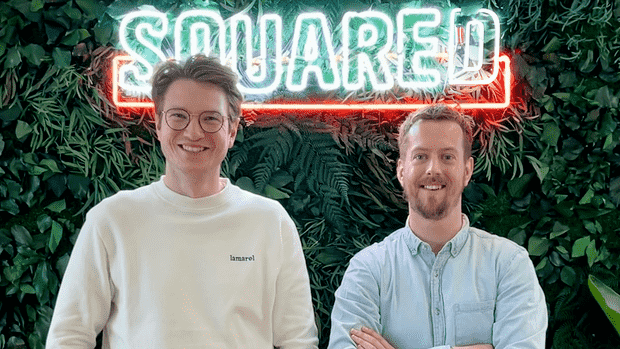Dusseldorf From pizza to water boxes to bags of crisps: Many people in big cities have their purchases delivered home in a very short time. Obi now also wants to benefit from this trend towards so-called quick commerce. Together with the start-up Bringoo, the hardware store chain in Hamburg wants to deliver orders from its range of 12,500 items to your doorstep within 45 minutes.
Deliveries will start in Cologne this week, and Berlin is to be added as an additional delivery area at the end of July. This service was thought up by the Obi subsidiary “Obi Squared”, a special unit of the family company. This should bring the outdated business with hardware store items into the future. “Our task is to bring constant innovation into the company,” says Dennis Hornung, who heads the think tank founded last year.
The Squared troupe is constantly examining new ideas, establishing contacts with start-ups, and analyzing problems in what the hardware stores have to offer. “We have to test a lot of ideas very quickly, with clear criteria,” explains Hornung. “In this way we also want to reduce the financial risk of the innovations.”
“We’re the first hardware store to offer Quick Commerce,” says Phil Jenke. Jenke, who is responsible for strategic relationships with the start-ups at Squared, contacted Bringoo founder Hasib Khan and convinced him to work together.
Top jobs of the day
Find the best jobs now and
be notified by email.
The other hardware stores in Germany also deliver, but not before the next day. And at significantly higher fees. At the Rewe subsidiary Toom, for example, a delivery costs at least 34.99 euros. Bringoo charges between 2.50 and 4.90 euros for Obi. You can order items with an edge length of up to two meters. “You can also have your Weber grill delivered there in the future,” says Jenke.
US start-up Instacart is a role model for delivery service
It is important to be able to implement new ideas quickly, Jenke describes the way Squared works. His team met Bringoo for the first time in October.
Bringoo also invested in the joint project with Obi. So far, the company has only delivered with cargo bikes and electric cars of the Fiat 500 model. For the DIY store deliveries, the start-up has purchased extra electric delivery vans, which are also stuck with the Obi logo.
This was made possible, among other things, by a round of financing in the mid seven-digit range at the beginning of the year. Khan also brought money into his company himself – from the sale of a successful start-up in Dubai.
Bringoo brought the successful business model of the US company Instacart to Germany. Unlike most delivery services, the start-up does not have its own warehouse, but cooperates with stationary retailers such as Rewe, Edeka and Hugendubel and delivers from their branches.
Delivery from the branch brings cost advantage
The orders are booked via the Bringoo app. Obi employees assemble the goods and Bringoo picks them up at the market.
E-commerce expert Matthias Schu from the Lucerne University of Applied Sciences and Arts calls this an “interesting approach that certainly has charming potential for success”. He assumes that because of the lack of inventory, Bringoo has a better chance of becoming profitable compared to the competition.
>> Read here: This is how medium-sized companies become midwives for start-ups
For Obi, however, the focus is initially not on whether the business model is directly profitable. “We want to differentiate ourselves from the competition,” says Squared boss Hornung. That is why the partnership with Bringoo is initially exclusive for one year, i.e. not open to other hardware store companies. Should it be a success, this agreement can also be extended.
Obi is not the first family business to want to bring start-up ideas into the company with an internal innovation factory – and to bring in external expertise for this. The logistician Fiege, for example, founded the subsidiary Xpress Ventures and hired serial founder Matthias Friese as manager. There he will act as a midwife for start-ups that will solve future logistics problems.
Obi gives the innovation factory a lot of freedom
One of the role models for the company builder idea is the heating engineer Viessmann. Years ago, he was the first medium-sized company to systematically set up start-ups in his own company. WattX is the name of the development unit there.
At Obi, they want to pursue both ideas at the same time: set up start-ups yourself and cooperate with existing companies. “Once we have identified a problem, we see whether we can solve it ourselves or whether there is already a start-up we can partner with,” says Jenke.
The subject of innovation has shaped Hornung’s career. He started his career at Rewe Digital, gained experience in e-commerce at Esprit and developed new digital marketing ideas for dm and L’Oreal at the Oddity agency.
But in the Obi family business, he once again found a special corporate culture. “Obi has structures with short paths that allow us to make decisions quickly,” says Hornung. “That agility suits us at Obi Squared.”
More: Fast delivery service Gorillas is looking for partnerships
